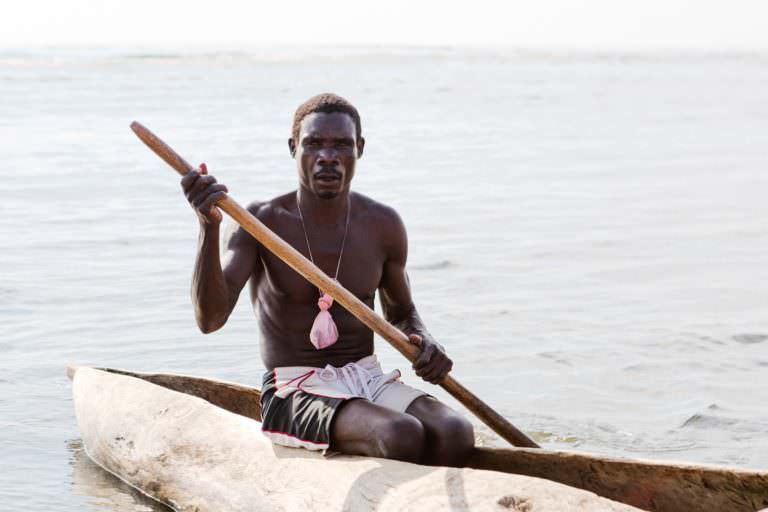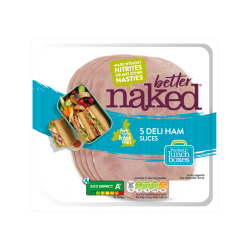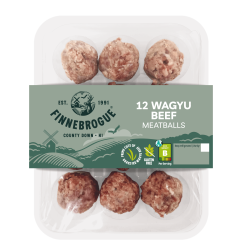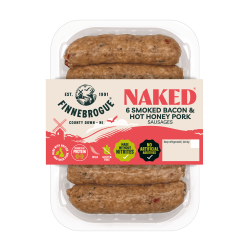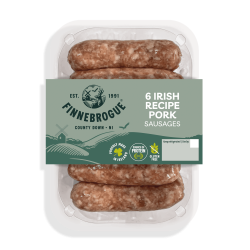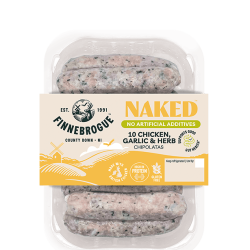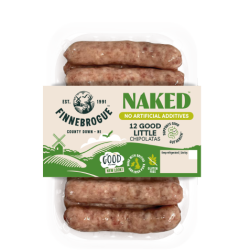Finnebrogue Artisan’s premium sausage brand, The Good Little Company, supports RIPPLE Africa’s Fish for Tomorrow initiative.
We have it pretty easy really. If we want to eat fish or feed it to our children we buy it at the supermarket or from the fish and chip shop. The biggest dilemma we face is which variety to buy – haddock, cod or fish cakes – and if there isn’t any fish available, we simply choose something else to eat.
Now imagine you are a Malawian like Kanyifwe Phiri who has to go out on to the lake to catch the fish themselves – a risky business in a small unstable canoe. And if there are no fish, you can’t feed your children. Malawians living in the rural villages along the lakeshore like Kanyifwe don’t have the luxury of supermarkets and many rely on fishing not only for their food, but for their livelihood too. Over 300,000 people in Malawi rely on catching or trading fish for part or all of their income but Malawi’s population has grown from 5 million in 1975 to 18 million. This rapid population growth and lack of effective control of fishing has led to several species now being classified as endangered – and many more could become so if action is not taken urgently. This is seriously affecting food security in a country where other sources of animal protein are scarce.
Since 2012 RIPPLE Africa have been working with fishing communities and Fisheries Department staff to address this issue. We are now running a successful community based fish conservation project along 250 km of Lake Malawi’s shoreline. Over 2,000 volunteers from fishing communities are now working in partnership with District Fisheries staff to protect fish during the breeding season and confiscating illegal fishing nets.
One of the biggest problems is the use of mosquito nets for fishing. Millions of mosquito nets are distributed across Africa every year by aid agencies but the estimated number of deaths from malaria in Africa still remains high. Worryingly thousands and thousands of these life-saving nets are being sold to fishermen. The fine meshed mosquito nets are sewn together to form drag nets, catching baby fish before they can grow large enough to breed and damaging the lake bed. RIPPLE Africa is helping communities to make sure that these fish are protected until they can breed; therefore, helping ensure that there will be fish in Lake Malawi for future generations. But don’t just take our word for it …
Rachael Mwenda is a fish seller and is secretary of the fish conservation committee at Sanga. “This project has benefitted the community at heart. It has changed the mind-set and opened our eyes to the importance of protecting the fish breeding sites. I even sometimes cook nsima and bring it down here to feed the baby fish in the lagoon. We want to educate and spread this knowledge now. In the past fish were very small but bigger fish are now being caught and this means that I get more money for the fish that I sell. The extra money that I am earning I use to pay school fees for my 7 children and have improved my house. I even save money with our village saving club.”
Soft Mkorongo is a fisherman who comes from a large fishing family and for whom fishing is his main source of income. He is one of the ten fish conservation committee members at Makuzi. “Before the programme started in 2015, fishermen caught small fish because they would fish with mosquito nets. We would catch maybe 2 or 3 smaller chambo but now we catch 15 and often they are very big fish. Species of fish that were not seen for many years are now being seen again with the coming of this project. I get more money from the fish that I catch now and this means that I can pay the school fees for my three children – before I had to borrow from family and friends but I am now earning enough from my fishing.”
Photos by Tara Rice
